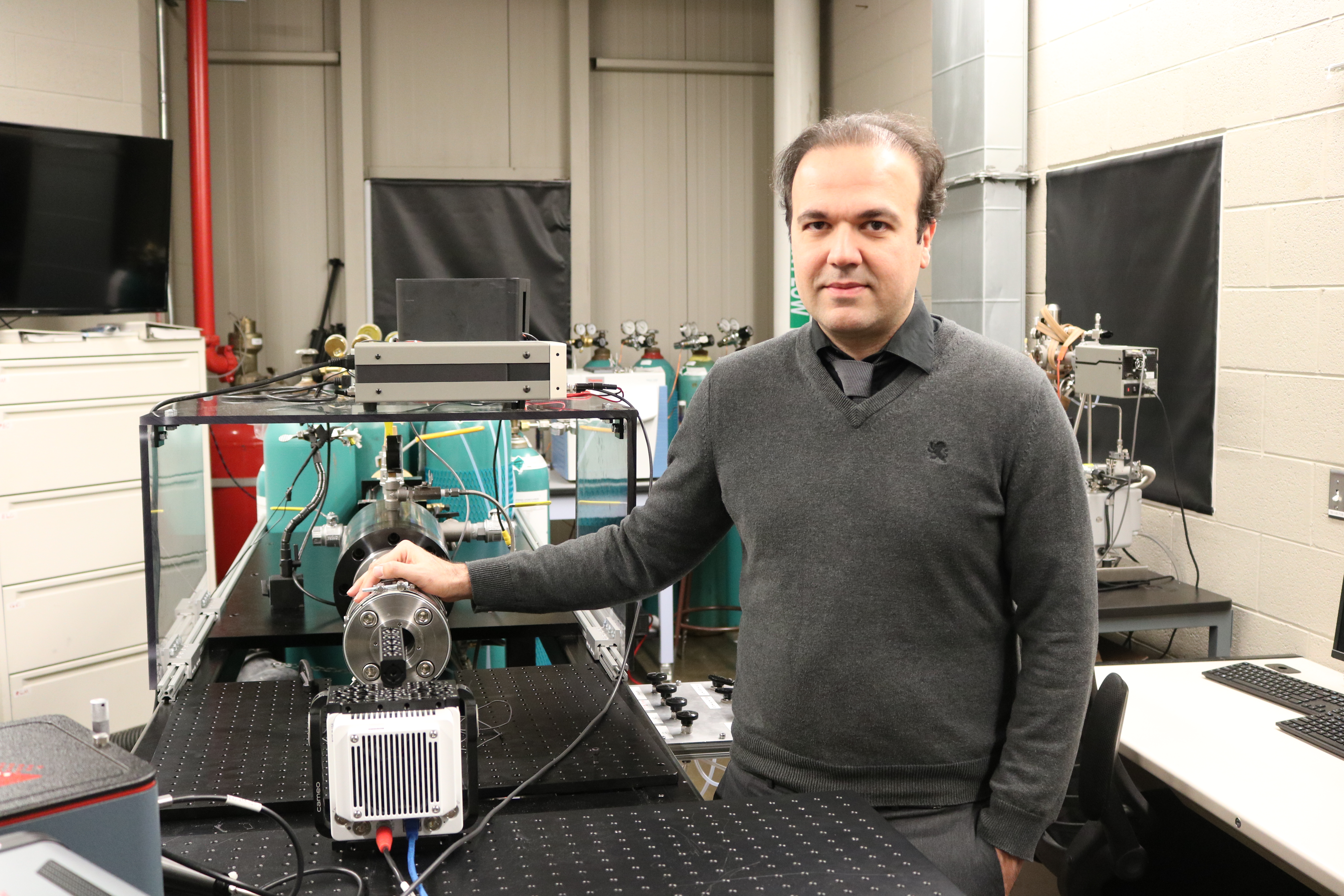Wayne State researchers working with U.S. Army to optimize vehicle engine performance
 Army missions can be drastically impacted due to engine failures caused by erosion in fuel injectors. Fuel injectors are used in both air and ground vehicles that have reciprocating (piston) and gas turbine engines. Cavitation damage can alter the material and shape of the nozzles, which leads to erosion that can cause injector failure and a major decrease in vehicle power.
Army missions can be drastically impacted due to engine failures caused by erosion in fuel injectors. Fuel injectors are used in both air and ground vehicles that have reciprocating (piston) and gas turbine engines. Cavitation damage can alter the material and shape of the nozzles, which leads to erosion that can cause injector failure and a major decrease in vehicle power.
With the help of a grant totaling $101,453 from the U.S. Department of Defense's Army Research Laboratory (ARL), Omid Samimi-Abianeh, Ph.D., assistant professor of mechanical engineering in Wayne State University's College of Engineering, will work with the ARL to alleviate these issues and optimize engine performance in Army ground vehicles and aircraft.
Samimi's project, "Turbulent spray combustion measurements and model development," aims to develop a numerical model simulating the cavitating flow inside high-pressure injector nozzles, which are used in most transportation vehicles, including all Army air and ground vehicles. Performance of these vehicles is often hindered by engine failures due to material erosion.
According to Samimi, the research plan can alleviate several problems facing other investigative efforts.
"It is very challenging to visualize the flow inside the fuel nozzle to better understand the physics of cavitation and optimize the nozzle geometry," said Samimi. "Numerical modelling can shed light on internal nozzle flow and help resolve the problem by providing very detailed analysis of flow inside the nozzle."
The project will be a collaborative effort between ARL and Wayne State researchers and graduate students in WSU's Combustion Physics Laboratory and the DoD Supercomputing Resource Center.
The grant number for this Department of Defense project is W911NF-18-0042.
# # #
Wayne State University is one of the nation's pre-eminent public research institutions in an urban setting. Through its multidisciplinary approach to research and education, and its ongoing collaboration with government, industry and other institutions, the university seeks to enhance economic growth and improve the quality of life in the city of Detroit, the state of Michigan and throughout the world. For more information about research at Wayne State University, visit http://www.research.wayne.edu.
Contact info
Julie O'Connor
Director, Research Communications
Phone: 313-577-8845
Email: julie.oconnor@wayne.edu